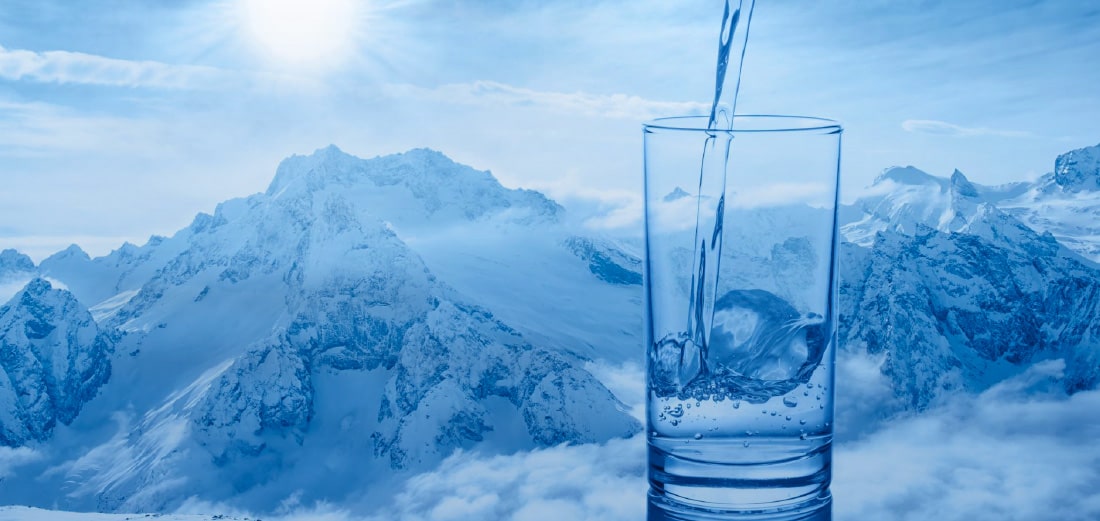Water in the body: Why is an adequate supply of clean water crucial for human health?
Why is an adequate supply of clean water crucial for human health?
Quality, clean water is not as common as it might seem at first glance. In fact, most of the processes in our body depend on it. What fully happens in the body thanks to water, what are its health benefits and how to maintain a proper drinking regime? Water is the most important component of the human body, making up more than 95 percent of all molecules in the human body. Other molecules, such as proteins, vitamins, minerals, trace elements, fats, etc., are represented in the body by less than 5 percent. Most people are mainly concerned with the aforementioned 2 to 5 percent, and often forget about the most important and largest part of the human body – the quality of the water used and ingested.
What is the function of water in the human body?
- Water serves as a medium for chemical reactions. Over 100,000 biochemical reactions take place in the body. Thanks to them we breathe, our hearts work, we digest food, we think, we sleep, we move, we even burn fat.
- Water acts as a transport medium. It brings nutrients into the cells and removes all harmful substances and impurities from the cells.
- Water is important for the absorption of nutrients from food. It facilitates digestion and is also essential for excretion.
- Water is needed to regulate body temperature and blood pressure.
- Water is, in a way, also a building substance as it is part of the mucous membranes that allow the proper functioning of tissues.
How does the body use water
Water management in our body is controlled by the central nervous system and antidiuretic hormone (ADH). Other hormones and osmotic pressure regulators that sense changes in fluid volume in the body also play an important role. In addition, minerals, especially potassium, sodium and chlorine, also have a significant effect on water metabolism. They maintain the correct pH of body fluids, control osmotic pressure and the permeability of nutrients to cellsěk.
The correct concentration of water and minerals that dissolve in it are one of the prerequisites for the natural course of bodily reactions and for ensuring health. That is why it is important to drink on a regular basis.
We also get some fluids naturally from food. Of these, water is partially absorbed in the stomach, but mostly in the small and large intestine. From there, it travels to blood fluids, kidneys and intercellular spaces, where it participates in other body processes. How do you increase the percentage of water in your body? Unlike some animals, which make do with water from food, we need to obtain about 80 percent of the water in our bodies by drinking properly. Preferably directly from high quality, pure water, which is most natural for our body.
Drinking during the day is important. The average person can survive without food for several weeks, but without water they would not last even three days. This fact shows how important water is for the human body. Despite this, we often underestimate the importance of a sufficient drinking regime. We enter a state of dehydration accompanied by a range of unpleasant symptoms that can lead to more serious health problems. Do you often feel tired, have no energy, dry skin or experience frequent headaches? Then you might not be drinking enough. The good news is that all this can be solved very easily with a regular drinking regime. In particular, with headaches being so common today, drinking a glass of good quality, clean water is definitely the first thing to do.
What are the symptoms of a lack of water in the body or dehydration?
- Thirst
Are you thirsty, most often in the evening because you did not have a sufficient supply of fluids during the day? Thirst is the first sign of dehydration in the body.
- Fatigue
Without enough water, no metabolic processes properly take place in the body, so the body expends several times more energy to function.
- Swelling of the limbs
If part of your limbs are swollen, you need to increase your water and salt intake. Salt is essential for removing toxins and waste from the body. Contrarily, if the whole body is swollen it is necessary to reduce salt.
- Headaches, migraines
Headaches, migraines, dizziness and light-headedness are very common symptoms of water deficiency, just increase your water intake and the pain will 'miraculously' disappear. A very common symptom of not getting enough fluids is dark urine, which makes it clear to its 'owner' that they are not getting enough to drink.
- Urine colour
A very common symptom of not getting enough fluids is dark urine, which makes it clear to its 'owner' that they are not getting enough to drink. If there is enough water in the body, urine has a light yellow to transparent colour.
- But that's not all…
Water also affects the amount of muscle mass, as it is present in up to 74 percent of the total composition of muscles. Not enough water in the body is also reflected in the condition of the skin and hair. Skin creams need to be replaced with a good drinking regime and regular rinsing with cold water, similarly for hair... And so we could go on.
Water affects our whole life and it is up to us to choose the quality of water - the basis of our life".
Want to know how to harness the potential of water in your life?
Read the article for more interesting information.
Source: https://www.newhumanacademy.com/cs/blog/voda-a-jeji-pusobeni-na-lidske-telo

